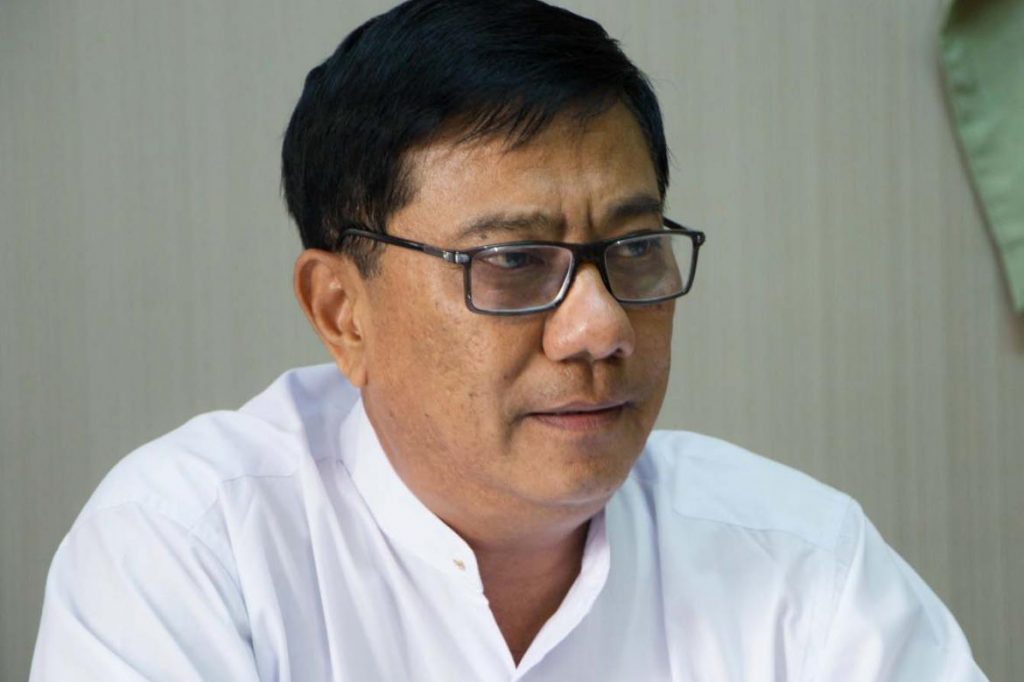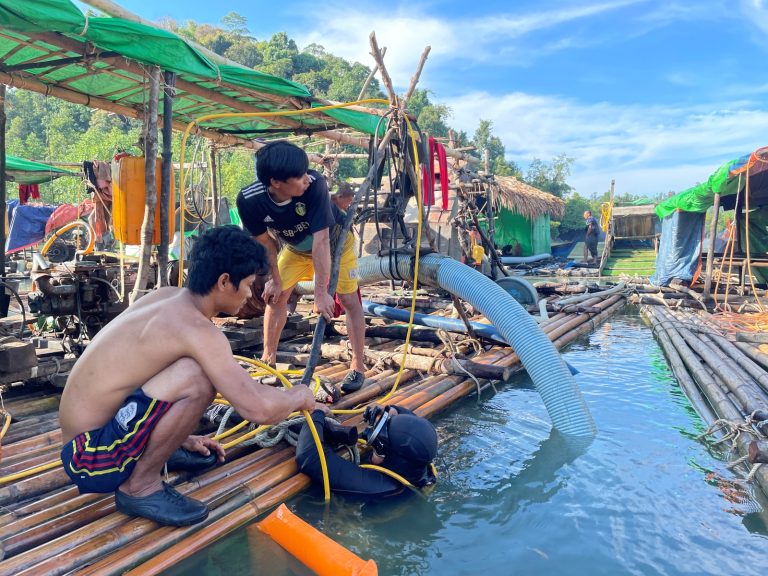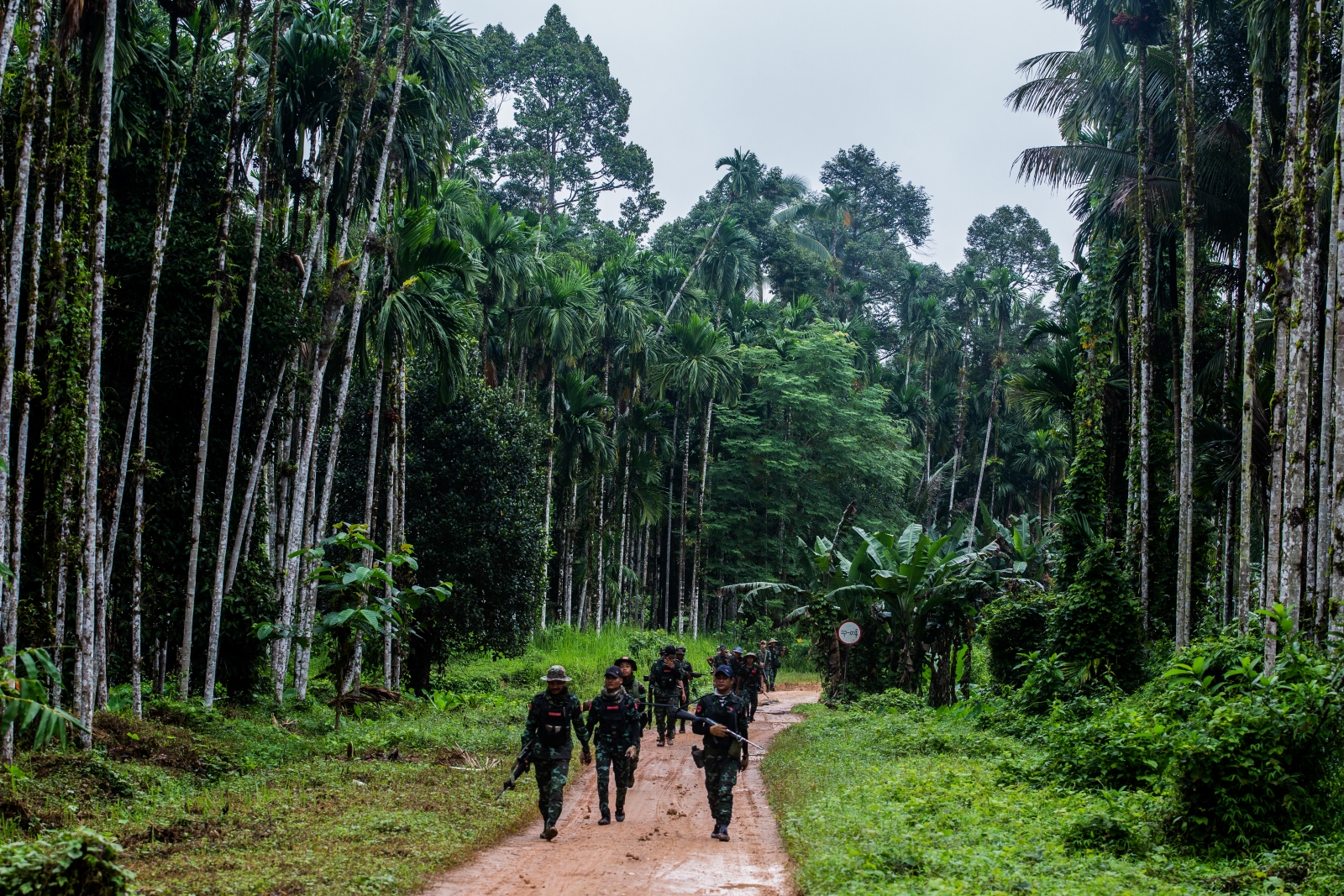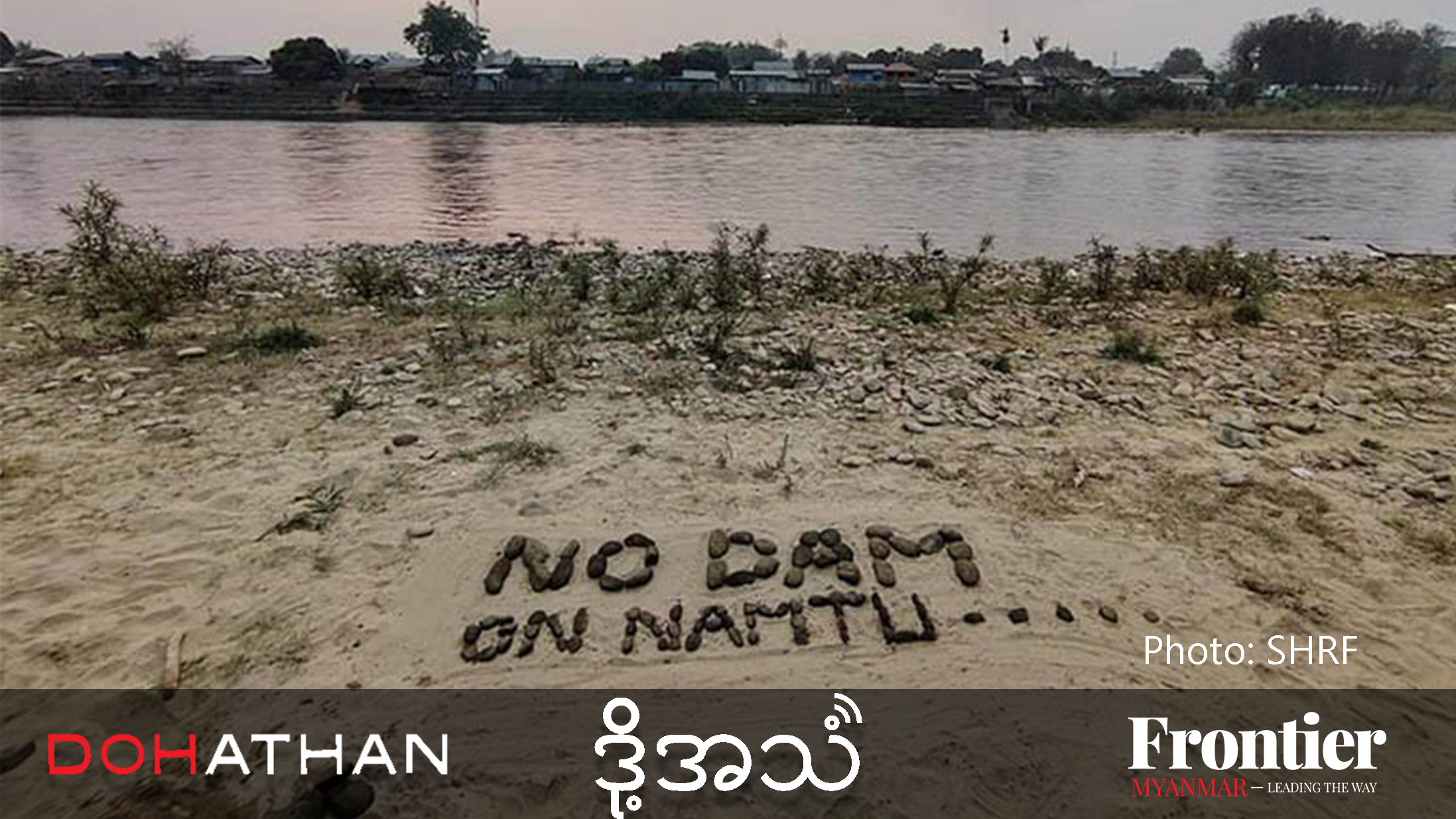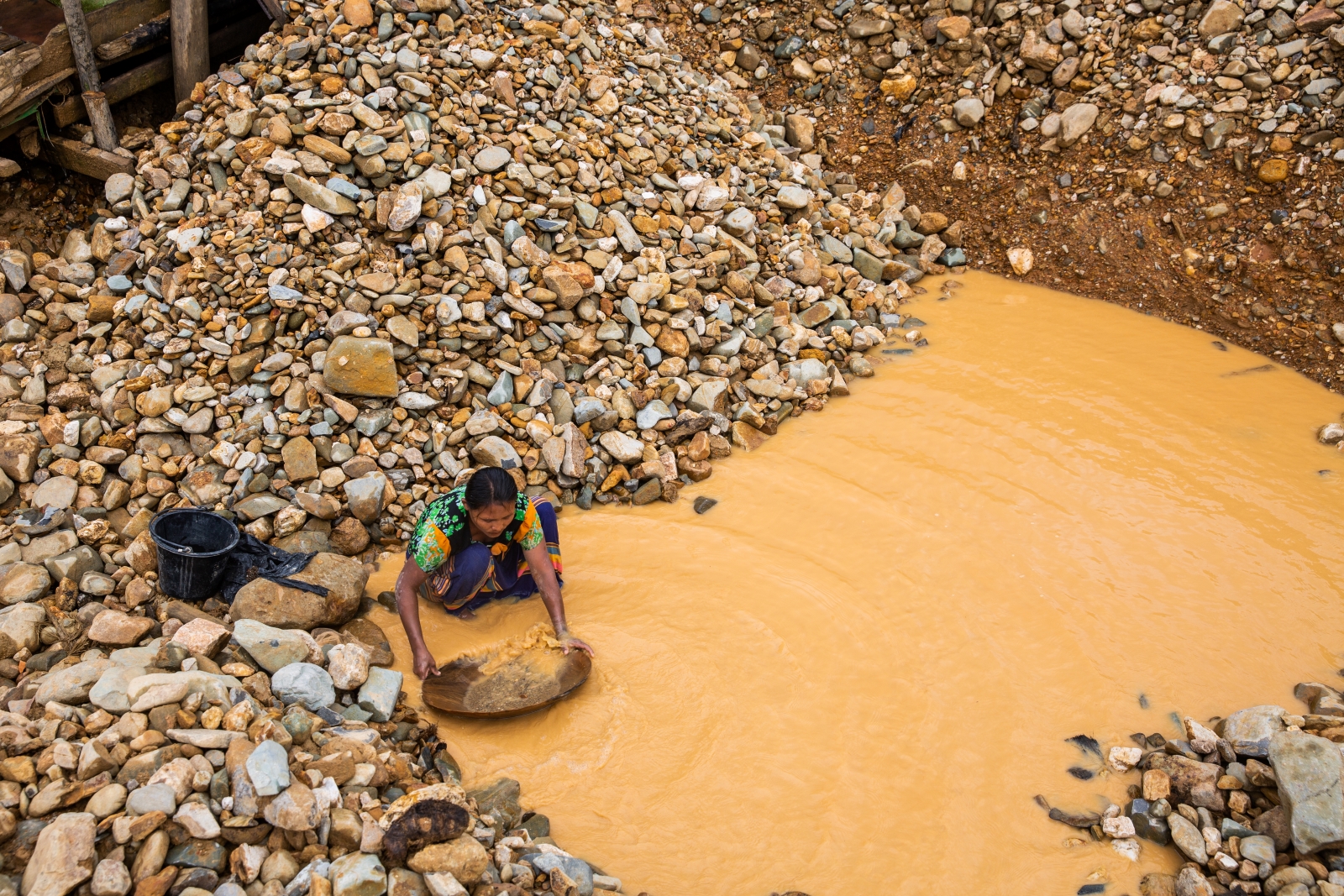Myanma Timber Enterprise responds to a report by the Environmental Investigation Agency alleging widespread corruption in the teak trade.
By KYAW YE LYNN | FRONTIER
Myanma Timber Enterprise has told Frontier it rejects many of the claims of high-level corruption made by a London-based environmental watchdog in a report about the trade in Myanmar’s valuable teak wood
An account of the report by the Environmental Investigation Agency, which focused heavily on a Hong Kong man named Cheng Pui Chee who later obtained Thai citizenship under the name Chetta Apipatana, was published by Frontier on February 20.
EIA said a two-year undercover investigation found that Cheng, who died in April last year, had conspired with senior military and government officials and had established a secret off-the-books system for fraudulent trade in the best quality teak.
“This was run in parallel to, and within, the official legal trade administered by the MTE,” it said, referring to the state-run Myanma Timber Enterprise, which operates under the Ministry of Natural Resources and Environmental Conservation.
Support more independent journalism like this. Sign up to be a Frontier member.
Frontier sat down with MTE deputy general manager U Khin Maung Kyi on March 6 to discuss the report.
The EIA report said Cheng Pui Chee, aka Chetta Apipatana, was the mastermind of a corrupt operation involving Myanmar teak. Did you ever meet him?
I’ve never seen him. I’ve never met him in person. But I’ve heard of his name. He’s a merchant who continually bought teak from Myanmar. That’s all I know.
When Cheng died in 2018, MTE placed condolence notices in state-owned newspapers. Was that because there was a close relationship between MTE and Cheng?
To tell you the truth, I did not notice the letters of condolence in state-owned papers. I only know about it because of the EIA report. I haven’t asked which section of MTE put the letters of condolence [in the state-owned papers]. Putting condolences in the papers is just a normal practice. As he was a client who was buying timber from the auctions of the Myanma Timber Enterprise, when he died, putting a condolence notice in the papers was a social [etiquette] matter.
The EIA report alleged that Cheng earned millions of dollars through the illegal trade in Myanmar teak and was able to do so because he bribed senior members of the junta and top officials at MTE.
I can’t comment on the bribery allegations because I don’t know about [the circumstances]. MTE has been operating in accordance with the rules laid down by the government […]. EIA needs to be more exact. It must say exactly which MTE officials took bribes, when they took them and how much they took. The report sort of accused all the officials concerned. In Myanmar, you can be charged with defamation, but because [EIA] is an international organisation it has not been charged. If it provided names and dates I’m sure that the current government would take action against the culprits.
EIA says the timber trade businesses founded by Cheng, including those established under his Thai name, are still operating. Is that true?
Whatever the accusations, which are simply allegations, they concern the situation under the former military government. Although Cheng’s businesses continue to exist, a system operating through bribery as alleged [by EIA] does not exist now.
Four companies established by Cheng are currently operating. These are Cheung Hing Corp Ltd, Northwood Co, Thai Sawat Industry Ltd and Pacific Timber Enterprise Co Ltd. Of these, only Pacific Timber Enterprise extracts timber.
Cheng’s companies are currently authorised to buy 5,602 tons of wood, all teak. They have been authorised to buy since 2012. Piles of logs have been stored at the logging yards at Dagon Myothit (South), Nwe Gway and Wartayer. They have already paid for it, and MTE has already issued delivery orders for 1,500 tons.
What is your response to the EIA’s call in the report for the reform of timber trading in Myanmar?
Most of the data in the report is about events that occurred about 30 years ago, when General Chavalit Yongchaiyudh was commander-in-chief of the Thai army. After Thailand banned logging in 1989, Thai logging companies were authorised to harvest timber in Myanmar. At the time the [Myanmar] military government was experiencing difficulties due to international sanctions and it needed the revenue. Much of the information in the report is not new.
[MTE] has been carrying out reforms for several years and this report will have no impact on that process.
Does that mean the report will have no impact on Myanmar’s timber extraction sector?
I’m not concerned. EIA accused us in 2017 of permitting private companies to harvest wood as sub-contractors of MTE, a practice called the timber sharing system. In fact, we had started reforms, making a decision not to hire any private companies for timber harvesting from the 2016-17 financial year onwards.
The [natural resources and environmental conservation] minister asked me to explain the reforms to EIA and I invited Faith Doherty [senior campaigner at EIA] to come to Myanmar. I think they came in September and I explained the situation.
Under the military government we had to do what it asked and we had to extract a lot more than the AAC [Annual Allowable Cut]. We had to extract however much the government wanted. This is what I explained to EIA.
I think the report is pushing the world, especially Europe, to sanction MTE and Myanmar teak. It’s a political blow. They are making accusations related to logs sold in 2012-13.
However much they try for sanctions, we are not worried. We are using a system that can trace the logs we extract and export and European countries are still buying our timber. We are still exporting.
When the 2015-16 stockpiles were exported to Europe, [MTE’s] extraction department issued 1,827 certified letters for source of origin, and 77,199 tons of teak and 632 tons of hardwood were exported. The European Union took all the teak.
Myanmar or MTE is not worried about the report. There’s nothing new about the EIA fighting against us. The EIA has continuously fought against MTE.


